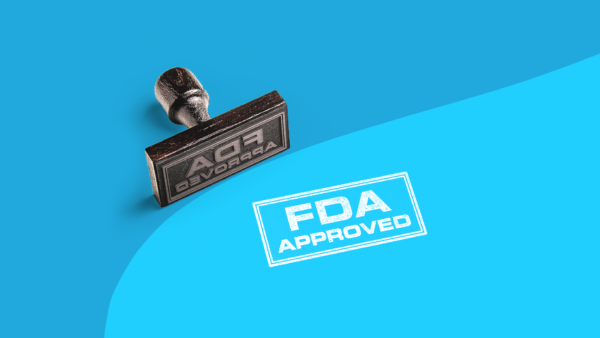Common ibuprofen side effects | Serious side effects | High blood pressure | Acute kidney injury | Stomach ulcers | Side effects timeline | Contraindications | Warnings | Interactions | How to avoid side effects | How to treat side effects
Ibuprofen is a common over-the-counter pain reliever and fever reducer that is safe for most adults, children, and infants to use for mild to moderate pain or fever. Widely available as a generic, ibuprofen is also instantly recognizable under the brand names Advil and Motrin. Healthcare providers may prescribe high-dose ibuprofen—called IBU—for juvenile rheumatoid arthritis, osteoarthritis, and menstrual cramps. Ibuprofen belongs to a family of drugs called nonsteroidal anti-inflammatory drugs (NSAIDs). These drugs block inflammation at the source by preventing the production of substances called prostaglandins, the chemicals responsible for swelling. NSAIDs like ibuprofen are very effective but can have unwanted side effects and drug interactions. Knowing what to expect can help keep problems at arms-length.
Common side effects of ibuprofen
Digestive system problems are by far the most common side effects people experience when taking ibuprofen. Here are the most common side effects in order of incidence:
- Heartburn
- Gassiness and flatulence
- Diarrhea
- Vomiting
- Stomach pain
- Nausea
- Constipation
- Fluid retention
- Liver problems
- Ringing in the ears
- Rash
- Itching
- Headache
- Dizziness
- Cough
- Decreased appetite
- Changes in potassium levels
Serious side effects of ibuprofen
Even though ibuprofen can be purchased without a prescription, it can have serious and even life-threatening side effects, particularly if it’s overused. These include:
- Anemia and other blood disorders
- Prolonged bleeding or easy bruising
- Bleeding, ulcers, or perforations in the stomach or intestines
- Swelling of the pancreas
- Blood clots
- Heart attack
- Stroke
- High blood pressure
- Congestive heart failure
- Liver poisoning, liver damage, or liver failure
- Kidney poisoning, kidney damage, or kidney failure
- Asthma attacks
- Eye damage or visual impairment
- Hearing loss
- Severe and potentially life-threatening allergic reactions such as anaphylaxis, drug reactions, or severe skin reactions
High blood pressure
Like all NSAIDs, ibuprofen can worsen hypertension. However, less than one percent of people taking ibuprofen will see a clinically significant rise in blood pressure. People being treated for hypertension are particularly at risk, so they should monitor their blood pressure when taking ibuprofen.
Acute kidney injury
All NSAIDs can be toxic to the kidneys, including shelf-bought NSAIDs like ibuprofen. The incidence has not been determined, but those most at risk include people with existing kidney disease, older patients, and anyone taking other drugs that can poison the kidneys. The best advice is to talk to a primary healthcare provider who can give medical advice about whether NSAIDs like ibuprofen are safe to take.
Stomach ulcers
NSAIDs like ibuprofen work by preventing the body from making prostaglandins. This helps prevent swelling, but prostaglandins also protect the stomach lining from the burning acid splashing around inside. No surprise, then, that gastrointestinal complaints are common with ibuprofen. If prostaglandins are blocked for too long, the stomach acid will wear away the stomach lining and create sores (ulcers). Peptic ulcers occur in less than one percent of people taking ibuprofen, but people who have this problem are most likely taking too much ibuprofen.
How soon do ibuprofen side effects start?
Many of the most common side effects of ibuprofen can start as early as the first dose. These include minor gastrointestinal issues, rash, itching, and headache. Some side effects may require taking ibuprofen for a while, like ringing in the ears, constipation, and liver problems. Other side effects, especially the more serious ones, usually require chronic use of NSAIDs to become a problem.
How long do ibuprofen side effects last?
Most ibuprofen side effects clear up when a person stops taking the medicine. Ibuprofen has a short half-life of about 2 hours, so a dose is undetectable in about 10 to 12 hours. That’s about the time it takes for ibuprofen-induced problems like stomach ache, nausea, indigestion, rash, headache, and other mild issues to clear up.
What are the long-term side effects of ibuprofen?
Ibuprofen, like other NSAIDs, is not intended for constant use. Some of the most serious side effects other than allergic reactions are primarily experienced in people who overuse ibuprofen. Side effects due to overdosing or chronic overuse of ibuprofen usually take longer to get better after the drug has been stopped. These include anemia, blood disorders, and serious gastrointestinal issues. The most severe adverse effects, such as heart attack, stroke, and GI perforation, could have long-term or lifelong consequences. Some effects, like kidney damage or liver damage, may be permanent.
Ibuprofen contraindications
Ibuprofen should never be taken by anyone with the following health conditions:
- Known allergies to ibuprofen or other NSAIDs
- A history of aspirin-induced or NSAID-induced asthma
- A history of aspirin-induced or NSAID-induced hives
- Aspirin-exacerbated respiratory disease
- Severe kidney disease
Ibuprofen and other NSAIDs should not be taken immediately before or after coronary artery bypass graft (CABG) surgery.
Pregnancy
Ibuprofen and other NSAIDs should be avoided in the third trimester to prevent possible serious health issues in newborns. Because ibuprofen can also cause problems with amniotic fluid and the fetus’s kidneys, ibuprofen use is discouraged between weeks 20 and 29 of a pregnancy. Acetaminophen is the preferred pain relief medication and fever reducer for pregnant women.
Breastfeeding
Ibuprofen is considered a preferred pain reliever in women who are nursing. Very little of it shows up in breast milk, and no problems have been reported in nursing infants.
Children
Ibuprofen is FDA-approved for use in children as young as 6 months. Dosing will be determined by weight, so make sure to purchase the age-appropriate format for infants or children before giving a dose.
Ibuprofen warnings
Although sold over-the-counter, NSAIDs like ibuprofen are powerful medications that affect many systems in the body. They should be used cautiously and judiciously rather than just pulled from the shelf and swallowed. Here are some potential problems.
Black box warning
Every ibuprofen package includes a black box warning from the FDA cautioning users that the drug could cause blood clots, gastrointestinal bleeding, ulcers, and gastrointestinal perforation. Blood clots can be serious enough to cause life-threatening cardiovascular problems, including heart attack and stroke.
Cautions
Pre-existing medical conditions could be worsened when taking ibuprofen. This doesn’t mean ibuprofen is dangerous, but people with these conditions should use the lowest possible dose and pay attention to any problems that may arise. These conditions include:
- Kidney problems
- Liver problems
- Heart problems including heart failure or any recent heart attack
- Risk factors for heart disease
- Stroke
- High blood pressure
- Digestive system problems
- Bleeding disorders
- Fluid retention
- Dehydration
Women trying to conceive
Ibuprofen may cause fertility problems in women, so ibuprofen and other NSAIDs are best avoided when trying to get pregnant
Seniors
Seniors and debilitated patients have an increased risk for severe adverse effects when using ibuprofen, particularly serious gastrointestinal problems and kidney dysfunction. Some elderly patients may need to avoid NSAIDs altogether. Others should only take the lowest possible dose for the shortest period.
Abuse and dependence
Ibuprofen is not associated with drug abuse, dependence, or withdrawal.
Overuse
Taking ibuprofen constantly or in high doses raises the risk of serious side effects, including gastrointestinal problems, bleeding, blood clots, heart attack, and stroke. Always use the lowest possible dose for the shortest period of time.
Overdose
Taking too much ibuprofen is a potentially serious problem. It can cause significant bleeding issues and even end in a coma. Call a poison helpline or get medical attention if too much ibuprofen is taken. Symptoms of an ibuprofen overdose include:
- Nausea
- Vomiting
- Abdominal pain
- Blood in the stools (black, tarry, or bloody stools)
- Coughing up blood or blood clots
- Drowsiness
- Blurred vision
- Slow or shallow breathing
- Fainting
The maximum daily dose of ibuprofen for adults is 1,200 mg per day for nonprescription ibuprofen. However, people prescribed ibuprofen (or IBU) are given prescriptions for up to 3,200 mg per day. That does not mean that it’s safe to take 3,200 mg of store-bought ibuprofen in a day! It’s not unless under the supervision of a doctor or other healthcare professional.
Ibuprofen interactions
To avoid problems, particularly gastrointestinal complaints, bleeding problems, or kidney issues, exercise caution in combining ibuprofen with:
- Other NSAIDs (especially ketorolac, which is contraindicated for use with ibuprofen)
- Salicylates (aspirin-like drugs)
- Some blood pressure medications
- Diuretics
- SSRIs
- Blood thinners
- Corticosteroids
- Aminoglycoside antibiotics
Ibuprofen has a slight effect on blood pressure, so it may add to the blood pressure raising effects of other drugs, such as stimulants, migraine drugs, and others. If blood pressure is a problem, then make sure to monitor blood pressure when adding ibuprofen to other drugs.
Healthcare providers do not advise people to avoid certain foods when taking ibuprofen. Though not dangerous, some dietary supplements affect bleeding, like garlic oil, krill oil, and omega-3 fatty acids. If bleeding and bruising are a problem, consider taking a break from these supplements when taking ibuprofen.
Both smoking and drinking raise the risk of ibuprofen causing gastrointestinal issues, including bleeding and ulcers, so it may be a good idea to cut back. It’s okay to drink moderately, but avoid drinking to excess.
How to avoid ibuprofen side effects
As an over-the-counter medication, ibuprofen is generally safe for people to take as directed. Most will experience no or only very minor side effects. Here’s some advice to ward off some of the more unpleasant side effects:
1. Take ibuprofen as directed
Follow all the instructions on the package or package insert. Don’t take extra medicine. Make sure to understand the minimum amount of time that has to pass between doses.
2. Avoid other NSAIDs
Combining more than one NSAID—a drug class that includes aspirin and naproxen—will increase the risk of side effects, including the more serious ones like bleeding. Don’t take more than one NSAID at a time. It’s tricky, though, because some over-the-counter combination drugs, like cold and flu medicine, may contain aspirin or ibuprofen. Always read the ingredients on combination drugs before using them.
3. Don’t keep taking ibuprofen long-term
Most of ibuprofen’s worst side effects are a result of using the drug too much. If pain is so bad that it requires continual doses of ibuprofen, get medical advice from a healthcare professional about alternative treatments.
4. Take ibuprofen with food
To avoid stomach pain or heartburn, eat a snack or meal before taking an ibuprofen dose.
5. Avoid smoking and alcohol
Drinking alcohol and smoking increase the risk for gastrointestinal problems, including bleeding and stomach ulcers.
6. Always ask about using NSAIDs with new prescriptions
Ibuprofen has some drug interactions that can worsen the side effects of both drugs. When getting a new prescription, ask the prescriber or pharmacist whether it’s okay to use ibuprofen or some other over-the-counter NSAID. This can help prevent being hit with unexpected, but preventable problems.
7. Use extra caution when administering ibuprofen to a child
If dosing a child, follow the dosing instructions very carefully. It’s easy to overdose a young child or infant. Only use the product formulation specific to the child’s age. Consult the dosing chart each time a dose is administered. If it’s in liquid form, shake it well before drawing out a dose. If not, the child might get too much ibuprofen in the last doses drawn from the bottle. Use the measuring device or oral syringe that comes with the medicine, not kitchen tools. Stop giving the medicine when the child feels better.
How to treat side effects of ibuprofen
While most people will have few or no problems with ibuprofen, that doesn’t mean they won’t happen. When they do, here are ways to handle them.
Stomach pain
If stomach upset or pain is a problem, take an antacid before each dose. If that doesn’t help, get medical advice from a healthcare provider.
Nausea
If ibuprofen is causing queasiness, eat simple and plain foods when taking the drug.
Stomach bleeding
Stop taking ibuprofen and get medical help if there’s bleeding in the digestive system. It can only be spotted through its symptoms:
- Bloody, black, or tarry stools
- Vomiting up blood or blood clots (“coffee grounds”)
Kidney problems
NSAIDs can cause problems with kidney function. The signs are not obvious, so stop taking ibuprofen and get immediate medical attention in the event of any of these symptoms:
- Decreased or no ability to urinate
- Painful urination
- Swelling in the extremities, particularly the feet and ankles
- Trouble breathing
- Tiredness
Sources
- IBU ibuprofen tablets drug information, U.S. National Library of Medicine
- Ibuprofen, Epocrates
- Ibuprofen, Prescriber’s Digital Reference
- IBU ibuprofen tablets prescribing information, U.S. National Library of Medicine











